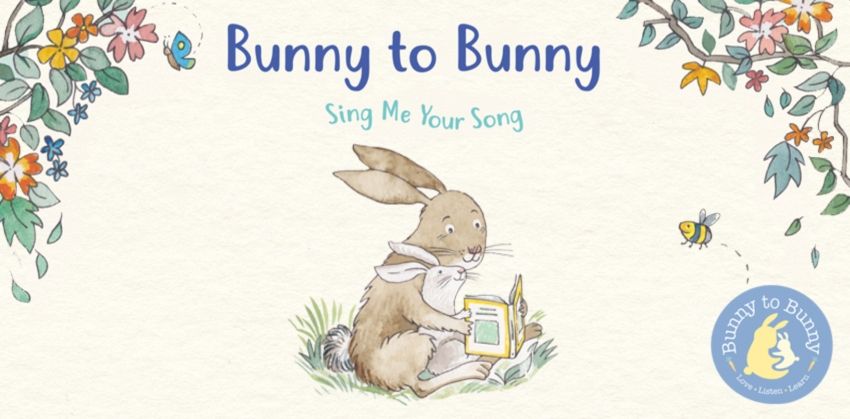Share Content
Article Link Copied
Bunny books kickstart lasting bonds between babies and parents

What if there was an easy way to foster beneficial interactions between infants and their caregivers? The book series Bunny to Bunny produced by fellows of the Learning Science Exchange Fellowship features rhymes and poems to help with bonding.
From the very first moments of life, the interactions a child has with the adults that care for it have profound and long-lasting effects. And yet we know that those early days of parenthood are often a whirlwind and it can be hard for parents and other caregivers to know how to create those important meaningful moments. This is where our book series Bunny to Bunny comes into the picture and offers easy-to-use solutions.
Research shows that half of parents believe that the age at which their care has a long-term impact on a child’s development begins at 6 months or older.1 But we know it really starts at birth. While it can feel strange to read books to or even talk to a small baby we know from the research that it can be hugely beneficial.2, 3, 4 How could we bring these insights from research to parents without overwhelming them with too much information?5
Simple as picking up a book
Pondering this central question, we probed further: What if we came up with a solution that would fit into everyday life without the need for hours of training? Something that would be as simple as picking up a book.
Our answer to these burning questions was to create the book series Bunny to Bunny. Bunny to Bunny will specifically help to create important exchanges that will have lasting benefits for both children and their adults. We have carefully designed these books to promote interactions that create warm and secure bonds. Bunny to Bunny is a collaboration between a science journalist, a public policy expert, an early childhood scientist and a children’s writer, brought together by the Learning Sciences Exchange Fellowship

Clockwise from bottom left: Janna Pahnke, Emily Snape (illustrator), Jill Shinderman, Megan McClelland, Catherine de Lange, conducting some market research
Grounded in science
The book series is firmly grounded in the science of early child development, more specifically on research of social-emotional development and attachment. For instance, the literature tells us that adults who engage in sensitive interactions with a child, such as playing and singing, looking at things together, making the same sounds, and copying facial expressions, help children feel secure. These effects are long lasting – helping young children to also develop self-control (such as the ability to focus attention and navigate emotions). This, in turn, helps with many things such as sleep, language, and social-emotional skills. The interactions also help adults to become more confident caregivers.
Bunny to Bunny brings research out of the lab and uses the creativity and communication values of the entertainment and journalism industries to make the science accessible, through a product that is grounded in science but requires no expert knowledge to use and enjoy. It also has great potential to be used as a tool not just for parents but for all kinds of caregivers and also educators. Additionally, it could easily be disseminated through public policy programmes.
We hope that Bunny to Bunny will help many little and big bunnies to grow together along with the characters in our series.
LSX is an interdisciplinary two-year fellowship focused on child development (ages 0-5) designed to break through traditional silos that separate learning scientists from those in journalism, education policy, and entertainment. Over two years, fellows will collaborate on projects that elevate the insights of the learning sciences for new audiences. The intent is to learn how to communicate with the public, write op-eds in teams, and advance a project related to early childhood development that would be strengthened with the infusion of ideas from talented people in other sectors. The fellowship is administered by New America, the International Congress of Infant Studies, and the Jacobs Foundation.